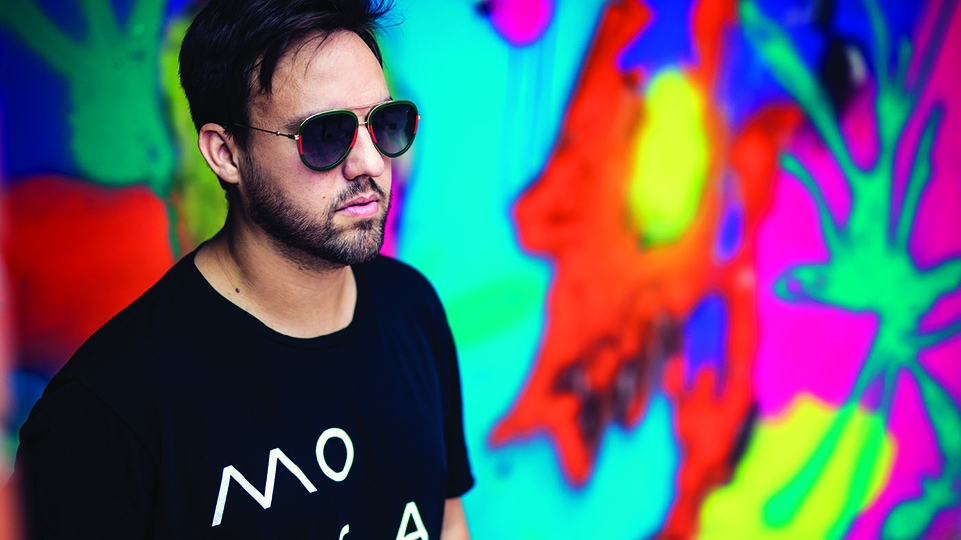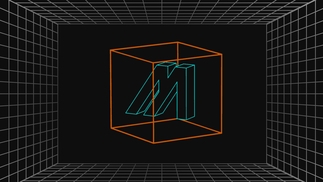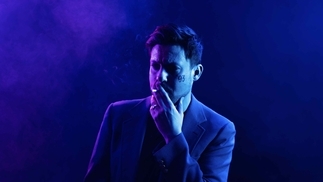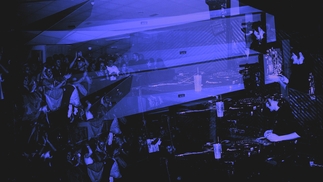Maceo Plex talks electro, EDM and going back to his roots as Mariel Ito

Under the name Maceo Plex, Cuban-American DJ/producer and label founder Eric Estornel is among the biggest players in electronic music. So why has he resurrected his more cerebral electro project, Mariel Ito, which has lain dormant for years? DJ Mag meets Estornel in Spain to find out about his upbringing in Miami and Dallas, his new album for R&S, and how the US affection for grittier beats is at the heart of his sound...
When Eric Estornel, now best known as techno titan Maceo Plex, was just three- years-old, things in his native Miami started to change. From April to October 1980 more than 100,000 Cubans reached Florida by sea, often in dangerously overcrowded boats, where they sought exile from Fidel Castro’s rule. The Cubans traveled from Mariel Harbor, 25 miles west of Havana, in what became known as the Mariel boatlift, an event that marked a milestone in Cuban- American history.
“My parents are very much first- generation Cubans that came over after Fidel Castro came in,” Estornel explains, 38 years later, of an event that would prove important for his musical career. “When the Mariel boatlift happened, it was another wave of Cubans coming in. A different kind of Cuban. They had been living in communism for a long time, there were a lot of criminals mixed in. There was a huge crime wave. And so the old-school Cubans would talk bad about those Cubans that came. And so we were ‘Marielitos’ if we misbehaved.”
Flash forward to 2000. Estornel, a young man hooked on IDM, electro, techno and glitch, has enjoyed success with his early music productions as Eric Entity and Maetrik. But he needs a new name for the weird, hyperactive electro music he has been putting together. “I wanted to have two projects, one for glitchy dance music stuff, like German stuff, and for electro IDM,” he says. “And so I was like, ‘Wait, “Marielito”.’ But it doesn’t look right spelled all together.”
The Mariel Ito project was born. It’s a name that Maceo Plex fans should be familiar with: his ‘Fabric 98’ mix included vintage Mariel Ito track ‘Xten’, while Estornel has been rinsing two new Mariel Ito tracks released earlier this year in his DJ sets. Estornel’s fans will be seeing a lot more of Mariel Ito as the year unfurls, too, with a retrospective LP coming on legendary Belgian techno label R&S and a batch of fresh Mariel Ito productions in the works.
The tunes Estornel played on that fateful night were unreleased Mariel Ito productions. Vandepapeliere was blown away. “He thought we should release a retrospective,” Estornel explains. “At the same time, I started a label for the Mariel Ito electro stuff [Lone Romantic] and started making new music as Mariel Ito again.”
The R&S retrospective, ‘Mariel Ito 2000 – 2005’, rounds up 10 unreleased tracks from the Ito archive. Maceo Plex fans who delve into its depths will recognize the way Estornel transitions his tunes from dark to light, mixing the beautiful with the beastly, as well as the producer’s typical melodicism. But other sounds may come as a surprise. The R&S tracks reference electro, of course, but also LFO’s bleep techno, the cerebral sound of Warp’s ‘Artificial Intelligence’ series, which birthed the IDM scene, the breakbeat techno of Future Sound Of London’s ‘Papua New Guinea’ and even Aphex Twin’s twisted melodies.
What does Estornel think Maceo Plex fans will make of the new album? “I think Maceo Plex fans will be quite disappointed.” Estornel laughs heartily. It’s hard to tell if he is being serious. “It is more of a reminder to people that Maceo Plex is not the only thing that I do.” That may be rather underselling it. Estornel is clearly thrilled to be releasing a record on R&S, a label whose distinctive prancing horse logo he describes as “in my psyche”, while the Mariel Ito project obviously means a lot to him on a personal level. “AsI grew up, people in my family would also refer to me as the ‘Marielito’, the little Mariel boatlift kid that gets into trouble,” he says. “My parents still to this day say it once in a while. They will still call me a ‘Marielito’.”
When he’s bad? Estornel laughs and looks faintly embarrassed. “No, not bad, but they will reminisce about how they used to call me that.”

The album’s release comes at an opportune time, with electro enjoying something of a club land revival, courtesy of artists such as Helena Hauff and DJ Stingray. For Estornel, however, electro beats take him way back to Miami in the 1980s. “Culturally Miami was doing pretty well, [with] a lot of rap coming out,” he says. “There was the Latin thing, Miami Sound Machine, things like that, and obviously salsa and all the things I heard in my house. But the main thing that got my attention when I was a kid, and my older brother’s attention, was the b-boying and the breakdancing and electro. Miami bass, electro, things like that, Soulsonic Force, that was really big down there.”
Miami, he explains, wasn’t a very nice place to live in the ’80s. “All through the ’80s it was pretty bad to live there, especially in Little Havana and some of the parts where I lived,” he says. The city was crime-ridden for a start: alongside the political exiles who came from Cuba in the Mariel boatlift were thousands of people released from Cuban jails and mental health facilities, a roots. “When I was a kid, I was really into dancing,” he says. “Even ballet, jazz, tap. I was into all kinds of dance classes, and I danced in a dance company as well. We would travel and do some dances, perform for people. It’s funny.”
Electro’s syncopated beats would prove hugely important in forming Estornel as a producer after he moved to Dallas in his high school years. “You hear Miami bass when you first listen to music, and the brokenness of it — it’s not a four-four beat, it’s not even a merengue beat — and so you immediately start getting into whatever isn’t a four-four beat,” he says. “And so for the first 10 years of my DJing career, growing up in the ’90s and DJing, I didn’t play a single four-four record at all. I just wasn’t interested.”
Instead, under the influence of his older brother’s record collection, Estornel turned to the breakbeat and bass pressure of hardcore and proto-drum & bass. “There was a lot of breakbeat at the time [in Dallas],” he says. “It was the early ’90s, so everyone was listening to ‘Sesame’s Treet’ [an unlikely rave re-make of the Sesame Street theme tune that was a bona fide chart hit in the UK] and ‘Charly’ The Prodigy’s novelty-tinged single]. I got into that. Just from taking my first ecstasy pill and going to a rave party, that is what you heard, that is what you are going to live.” This influence — the mingling of breakbeats, bass and electro stutter — is still evident in his music today, tracing a line that goes from Mariel Ito’s 2018 EP ‘2e Komst’ right back to his childhood sounds.
DJ Mag asks Estornel how it feels to be concentrating again on the electro music that he loved as a child. We expect him to start gushing with emotion, but his response is far more measured, a sign, perhaps, of adult responsibilities weighing on his brain. “It is exciting, but it is worrisome, because right now, especially with situation portrayed in Scarface, Brian De Palma’s classic tale of Marielito-turned-drug lord, Tony Montana. A South Florida Sun Sentinel article in 1985 claimed that there were 16-to-20,000 criminals among the 125,000 Cubans who made it to Florida in the boatlift, contributing to “an alarming increase” in South Florida crime.
Musically, though, Miami was a great place to grow up. Alongside his older brother, the young Eric Estornel was a keen dancer, something he attributes in a subconscious way to his Cuban dance music, it’s fast.”
He clicks his fingers frantically to make his point. “Everything is going really fast, people going up and down, and left and right. There are all these new kids coming up and there’s old people disappearing. So it is kind of worrisome, because I need to keep that going, and I have it always in the back of my head. I need to keep the Maceo Plex thing going. But this is a really nice artistic release for me.”
It feels slightly strange to hear a DJ of Maceo Plex’s stature talk like this. In Europe, he routinely plays to crowds in their thousands, and his DJ schedule for September 2018 sees him play 16 dates at grandiose venues including Amnesia and Privilege in Ibiza. He has a busy production schedule too: in 2018, he has released two EPs as Maceo Plex, while his remix work has seen him take on everyone from Röyksopp to Gus Gus. There’s Lone Romantic to think of too, the label launched in 2017 to release “electro-y things” from the likes of Orbe, Lord Of The Isles and Carl Finlow, as well as Mariel Ito.
Estornel is certainly not complaining about the position he finds himself in. Several times, in fact, he calls it a “blessing”, and he sounds genuinely moved by the fact that thousands of people want to listen to his music. Rather, we sense a kind of hard- nosed realism in his words. He knows what people expect from Maceo Plex and he is happy to give it to them. And yet a certain frustration appears to leak in when he talks of his attempts to bring something other than the four-four thump to his Maceo Plex sets.
“I don’t get why when I [play] an old breaks track, people aren’t still dancing,” he says. “I will look out to the crowd, and the whole crowd will be like this.” He puts a hand excitedly in the air, his face a picture of glee. “And then they will go down.” He lowers his arms, looking comically moody. “They are almost waiting for me to get through my little tantrum.” He laughs, again, clearly not entirely serious about his choice of noun.
The exception to this is in the USA, where he plays to slightly smaller crowds, who tend to be more open to changes of tempo and beat. “I feel like I can get funkier back in the US than in Europe, especially in [mainland] Europe,” he explains. “I feel like everyone in Europe is just ‘BOOM BOOM BOOM BOOM’ all the time. When I get back to these smaller clubs in Dallas and Miami, I can get really funky, and the whole crowd is going nuts.”
Keen to defend the old continent, we wonder if this might be because he plays smaller clubs in the US? He says no. “Because there is more hip-hop on the radio over there, they can get down with the funky beat. You can get slow with it too. You can go real, real trip-hoppy, and people will be into it, like, ‘Yeah!’”
But what about EDM we argue, this writer’s European sensibilities piqued? Surely that’s not very funky. He cuts me off, excited to air his theory. “EDM is European, it’s not American [laughs]. It’s not American in any way.”
But surely... “I am a proud American, kind of, so whenever you bring up the EDM thing I am always like, ‘We didn’t invent that, we had nothing to do with that.’ That is actually very Dutch, very Danish, very Swedish, very German. We don’t have Tiësto or Armin van Buuren or people like that. At worst, we have copycats, people who are ‘European trance guys’, but none of them have ever been that big.”
He looks over to Jerred, his American assistant, for confirmation. Jerred has his headphones plugged in and his attention on his screen and pays us no mind. Undeterred, Estornel continues with his theory. “The superstar DJ culture, that is from Europe,” he says. “The Sashas at first, and later on the Paul Van Dyks and all that stuff. That’s European. I always thought of America as being more of a raw place. Because we are so suppressed by shit pop music on the radio, the underground is really underground. There’s some really cool things happening. The EDM thing is just that there are big companies paying for these big festivals. But we have, what, three, four festivals that are huge? Holland has like 100. That’s not us.”
Proud American (“kind of”) he may be, but Estornel is still a fan of Europe, which he has called home since moving to Spain in 2009. He believes that the difference between the electronic music scenes in the US and Europe is essentially one of scale. “Dance music is just smaller in general in America,” he says. “So we have massive clubs playing crap music, but maybe one or two in every major city. But here in Barcelona, there is like 10 playing shit music to 2,000 people and in London I don’t even want to say how many there are. Or even in Berlin, there’s shit music in Berlin on a massive scale. So it’s like everything is just smaller in the US. So even EDM is smaller in the US. And the underground is smaller in the US. And in Europe, everything is bigger. In order to play what I wanted to play, and play for more people, and make money off it, I moved out here.”

Estornel has to leave soon to pick up his child from nursery. He seems the very picture of contented domesticity, a regular American dad who happens to make a living playing electronic music to thousands of screaming fans every weekend. From the eighth floor of his studio space, you can see the hills that encircle Barcelona, glinting majestically in the late August sun. Inside, the air-conditioning whirls among the treasure chest of musical toys. We would be happy to be Eric Estornel at this point. You can see why he considers his success a blessing.
And yet we can’t help but wonder if this Miami electro kid-turned- ’90s raver ever feels limited by the vast European crowds he plays for, and their stubborn connection with the four-four beat. DJ Mag thinks back to a question we asked earlier: is it frustrating for him that he can’t play funky in Europe, given his wide-ranging musical tastes?
“Yeah... I mean.... not really,” he replies, diplomatically. “Because I like both. It’s just, I know that this is not the right place to play that. I also get shoved onto huge stages. So even when I confirm something, if somebody will tell me it is a 700-capacity place, and I arrive, it is 2,000 people. Like, ‘What the fuck?’[laughs]"
“We try, my agents and I, to confirm small things, and they almost always — it is great, it is a blessing — but they almost always move me into the bigger room. And you’re like, ‘The whole point of me being here is playing the smaller rooms so I could do different things.’ ‘Yeah [makes the voice of a wheezy, cigar-chewing promoter], but we sold too many tickets so you are playing the bigger room.’ I’m like, ‘Fuck!’”
He returns to the same theme towards the end of the interview when we ask about a message that he tweeted before he played an R&S party in London. “Doing my Mariel Ito thing tomorrow for the @randsrecords party at @Egg_Club_London,” it read. “Please come with open minds and no Maceo tune requests tho.” The tweet finished with the Hugging Face emoji. Given the clear water between Maceo Plex and Mariel Ito, we ask, slightly naïvely, if people turn up at Mariel gigs with Maceo Plex requests.
“Oh yeah, the entire time,” Estornel replies, without skipping a beat. “It actually happened [there]: nobody requested a tune, but I was there at an R&S party and playing as Mariel Ito, playing a different kind of set, and people just kept yelling out ‘Maceo!’ ‘Go Maceo yeah!’” He sounds like a sports fan, high on blind enthusiasm for their local team. “I was like, ‘Really?’ That’s frustrating. I think that’s more frustrating than not being able to play what I want to play. It’s almost more frustrating that people won’t accept that there are different sounds.”
Do people like that get won over? “No, actually most of those people end up leaving,” he says, in a tone that suggests this is not entirely unwelcome. “The ones that stick around are the ones that are patient, and they want to hear something different.”
He sounds amused and maybe slightly exasperated with the situation, but not at all angry. Instead, his realism returns. “If I didn’t already have the lifestyle that I have, and the family and all the expenses that we have now, I could probably just go ‘Fuck this’ and go back to being a 25-year-old, no worries at all, playing in bars for 100 people, 200 people,” he says. “But I am 40, got bills to pay and it’s like, ‘Alright, I will do whatever the promoter said to me.’ I am not going to say no to playing for thousands of people.
“But some artists, some producers, maybe when they are 21-years-old, they take this route of, ‘Fuck big clubs, I am playing the little clubs, I don’t care how popular I get.’ And sometimes they get really popular and they will still go for the little places. For a massive pay cut. Respect to them. But wait until they are 40 something [laughs a lot].”
With house and techno now into their fourth decade, it is not uncommon to see DJs spinning in their forties and fifties. And yet the perception of electronic music remains that of a young person’s game, where youthful clubbers bug out to youthful DJs, who are riding the giddy wave of early success. This is great in principle, of course, but in light of the tragic death of Avicii, at just 28, some people in the dance music industry have questioned whether we are piling too much pressure on our young DJs. Against this, Estornel’s level-headedness is a source of comfort, a reminder that you can play to thousands of fans every week without disappearing into your own legend. We wonder if this prudence might have to do with the fact that Estornel found success with Maceo Plex in his thirties.
“God yeah, for sure,” he says. He sounds genuinely relieved for his late-coming fame. “A lot of people who blow up in their twenties, they’re moving too fast,” he says. “The good thing is I spent my whole entire twenties as a nerd, making music. So it wasn’t until my thirties that I even really knew how to party and wanted to make dance music and make people dance.”
Is he still a nerd? “Oh yeah, yeah, for sure. I had to de-nerd, I had to be somebody else almost to make house music. I had to be less of a nerd. Kind of simplify things [laughs].” Does he have to do that today, tell himself that a track is done? “That or this is just going to ruin the track. I will make cool sounds and I will be like, ‘This has got to go in the track’, and I will think, ‘Ahh, that is just going to ruin it’. Let’s just be honest, people want to hear mainly that kick-drum, that voice, or whatever, or a couple of things.” He’s being too modest. The music he makes as Maceo Plex may be simple, but it is ruthlessly effective, while the experimental snarl of the Mariel Ito album will find him fans in new and unexpected places. But maybe modesty runs in Estornel’s blood, mingled in with his nerdish good will.
Interview over, we go down to the sticky Barcelona streets, where a gloopy sea smell hangs in the hot summer air. Eric wishes me a warm goodbye, then rides off to pick up his son on a flashy motorized scooter, electric lights shining as if to spite the afternoon sun. As a ride it is a little geeky, maybe, but also technologically impressive and a whole lot of fun. The perfect ride, then, for Eric Estornel.





